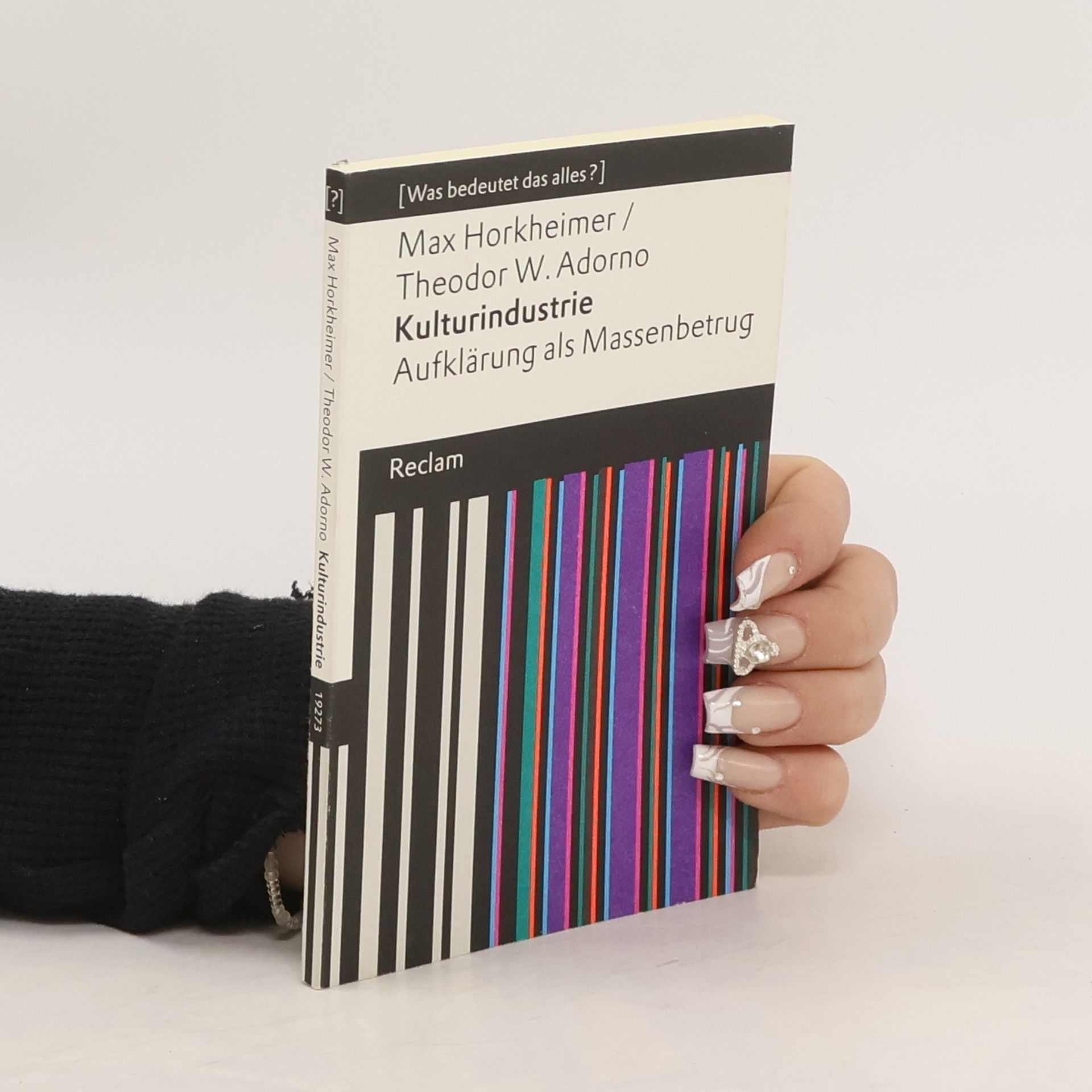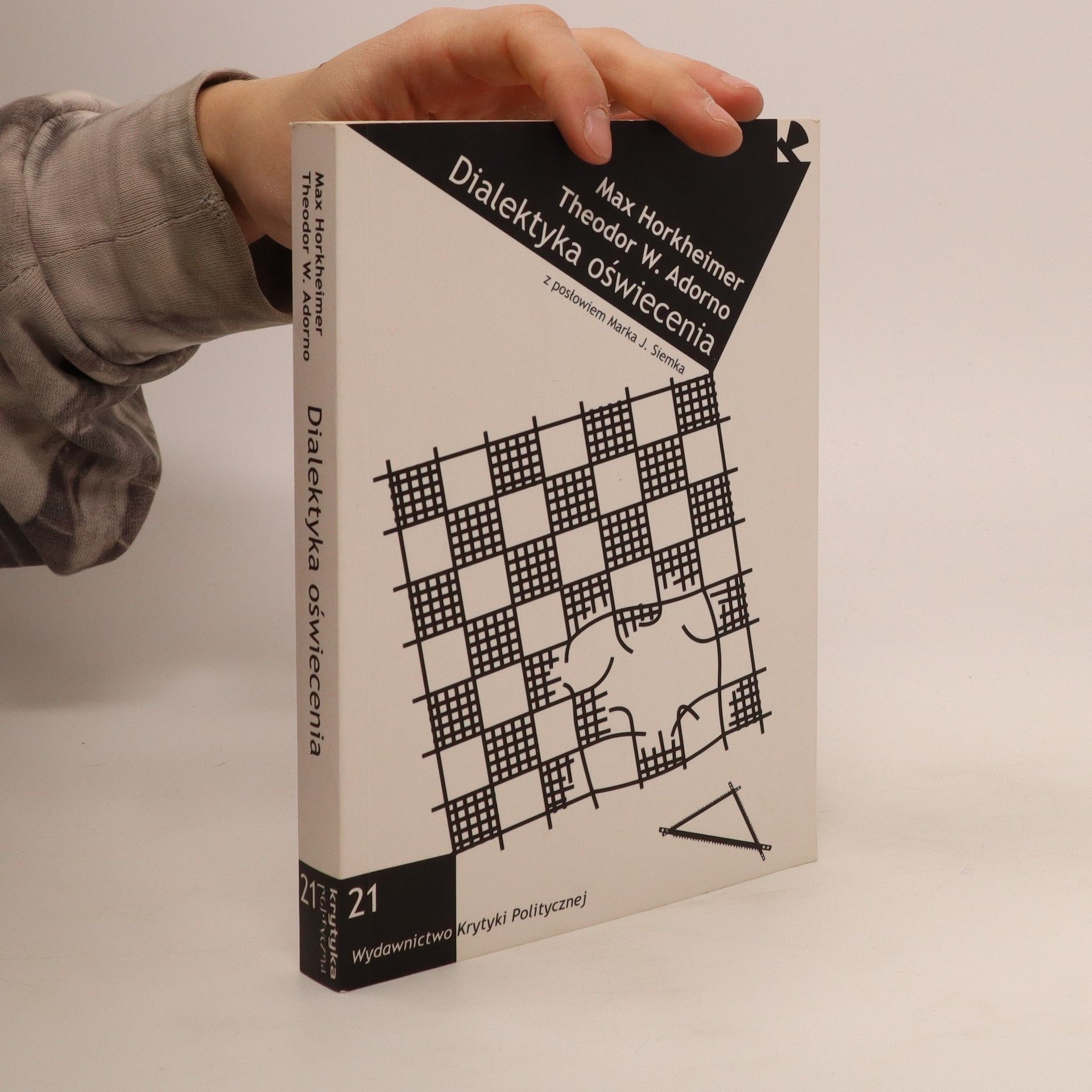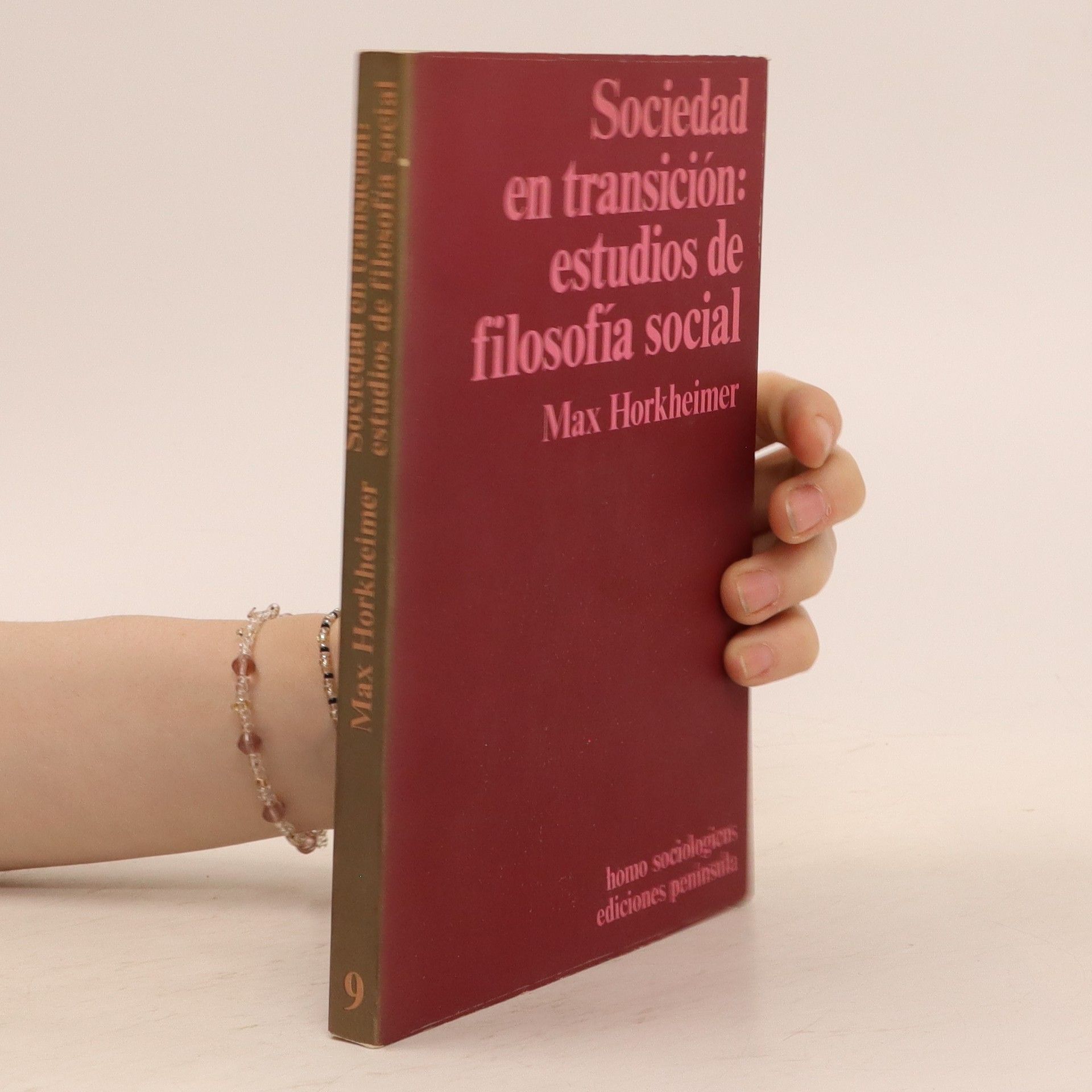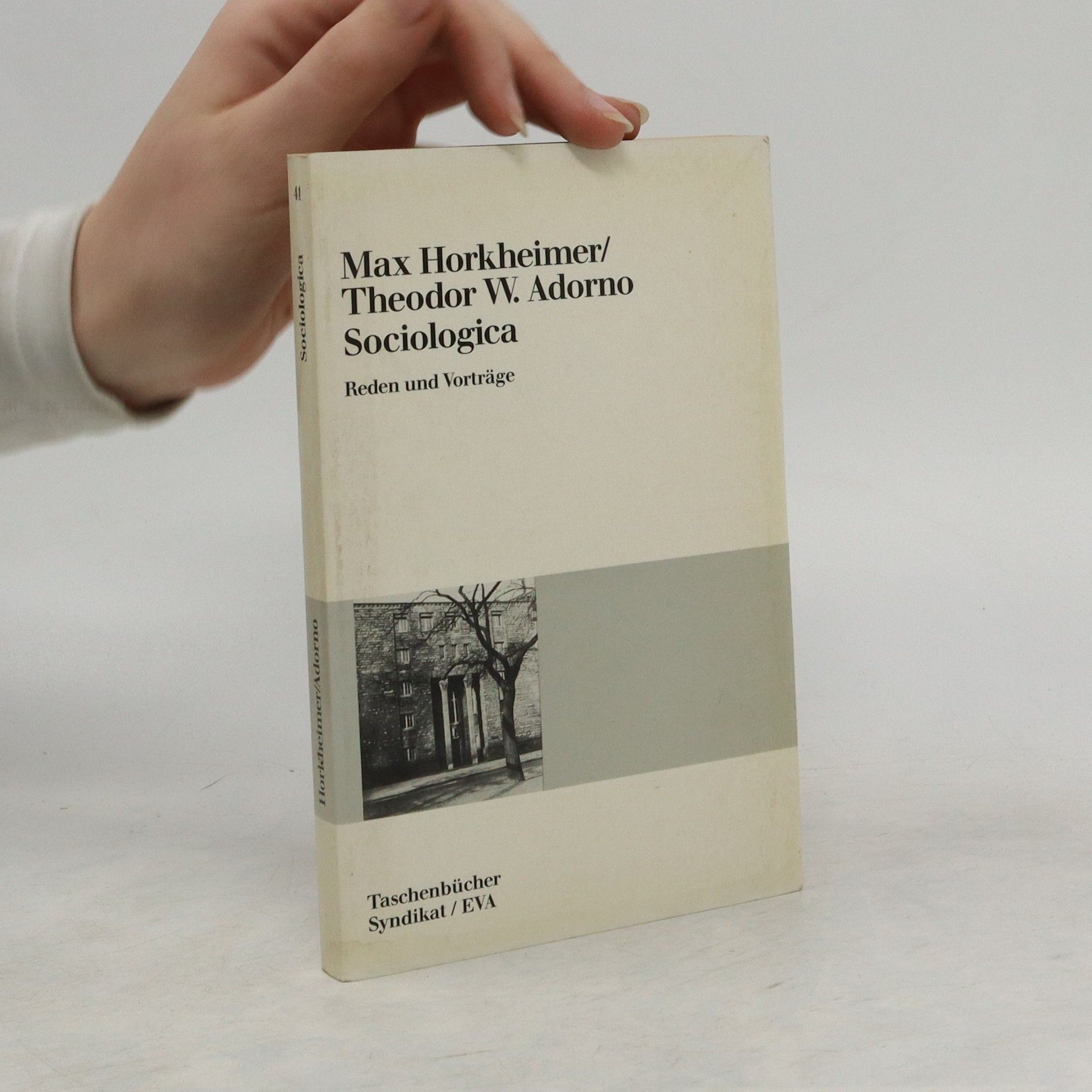Opublikowana po raz pierwszy w 1947 roku a pisana w mrocznym okresie II wojny światowej Dialektyka oświecenia jest być może pierwszą próbą opisu stanu życia publicznego, w którym „myśl staje się nieuchronnie towarem a język jego reklamą”. To z niej czerpała większość postmodernistycznych demaskatorów nowoczesnego rozumu (od Zygmunta Baumana po Michela Foucaulta i Jeana-François Lyotarda). W zamieszczonych tu filozoficznych szkicach i notatkach znajdziemy bezkompromisową analizę niechcianych konsekwencji rozwoju nowoczesności i krytykę powstającego w ten sposób społeczeństwa kultury masowej. Oświecenie - rozumiane najszerzej jako postęp myśli - zawsze dążyło do tego, by uwolnić człowieka od strachu i uczynić go panem. Lecz oto w pełni oświecona ziemia stoi pod znakiem triumfującego nieszczęścia. fragment książki Max Horkheimer (1895-1973) - z wykształcenia psycholog i filozof, jedna z najważniejszych postaci i dyrektor frankfurckiego Institut für Sozialforschung. W Polsce ukazały się . Krytyka rozumu instrumentalnego (2007) oraz Społeczna funkcja filozofii. Wybór pism (1987). Theodor W. Adorno (1903-1969) - filozof, socjolog i teoretyk muzyki związany ze szkołą frakfurcką i teorią krytyczną. Po polsku ukazały się . Dialektyka negatywna (1986), Minima moralia (1999).
Max Horkheimer Book order (chronological)
Max Horkheimer was a pivotal figure of the Frankfurt School, a group of thinkers dedicated to critiquing modern society. His work, particularly when co-authored with Theodor Adorno, delves into the darker aspects of enlightenment and reason. Horkheimer explored how the tools of modernity can turn against humanity, leaving an enduring legacy on critical theory. His approach underscores the necessity of constantly questioning the power structures and ideologies that shape our world.


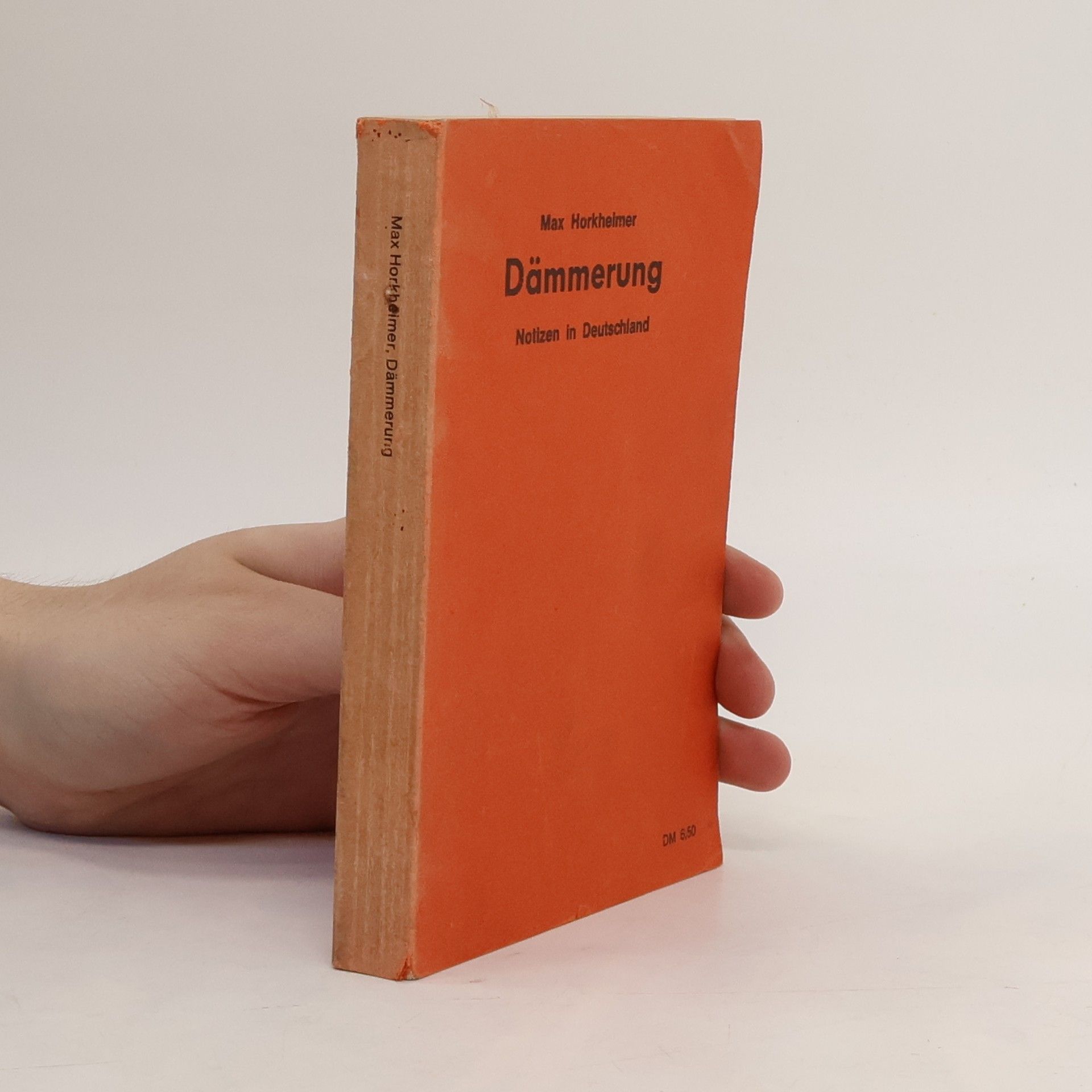

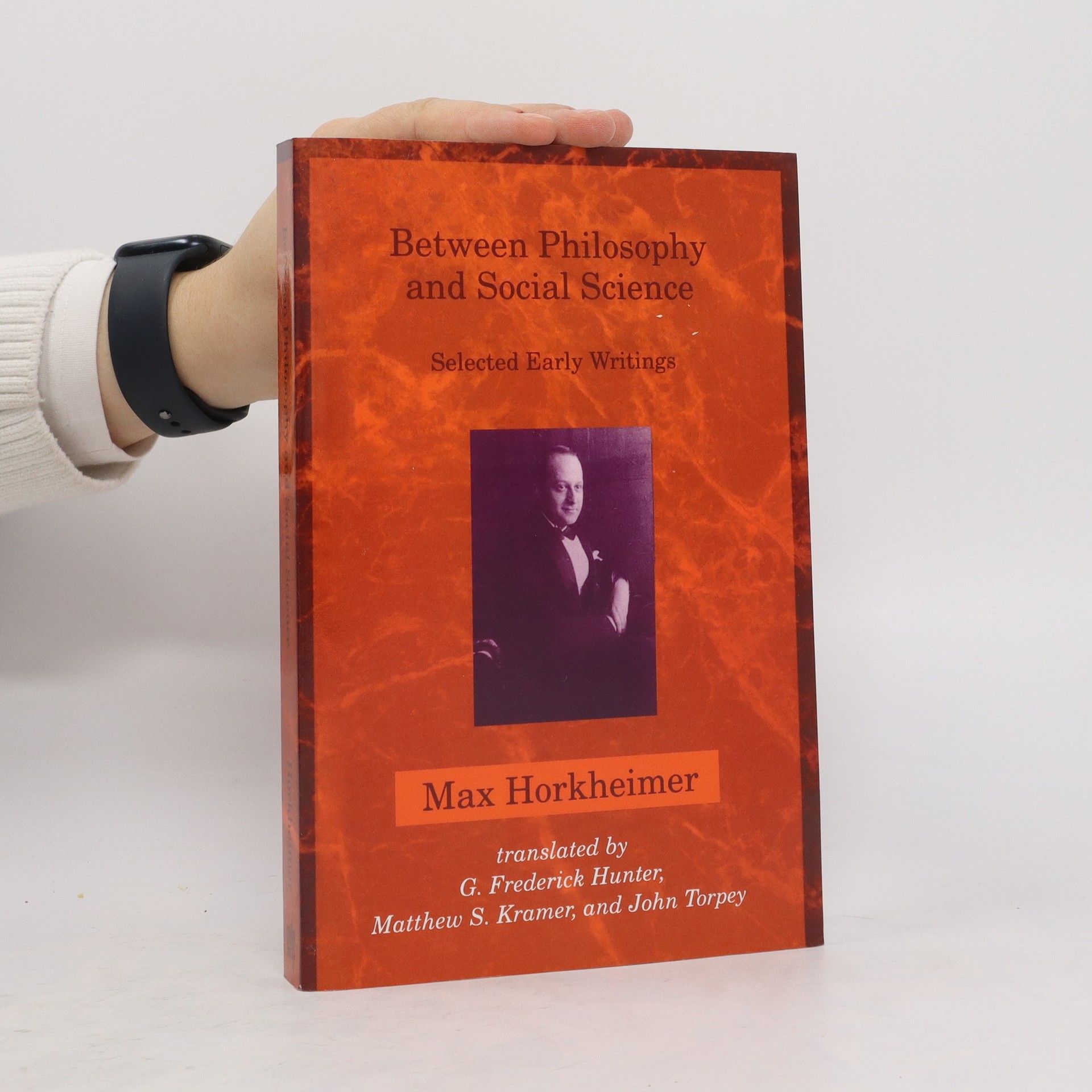
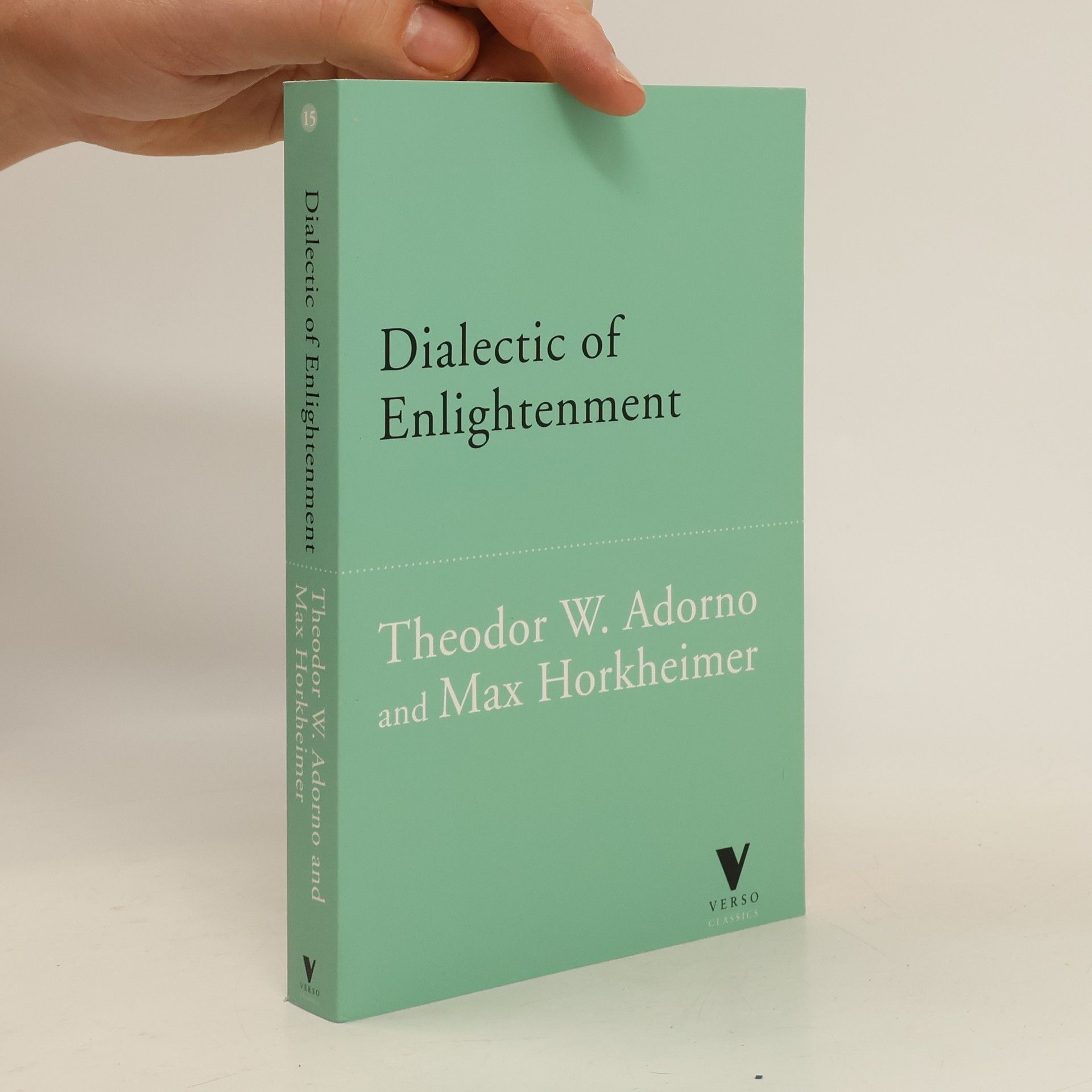
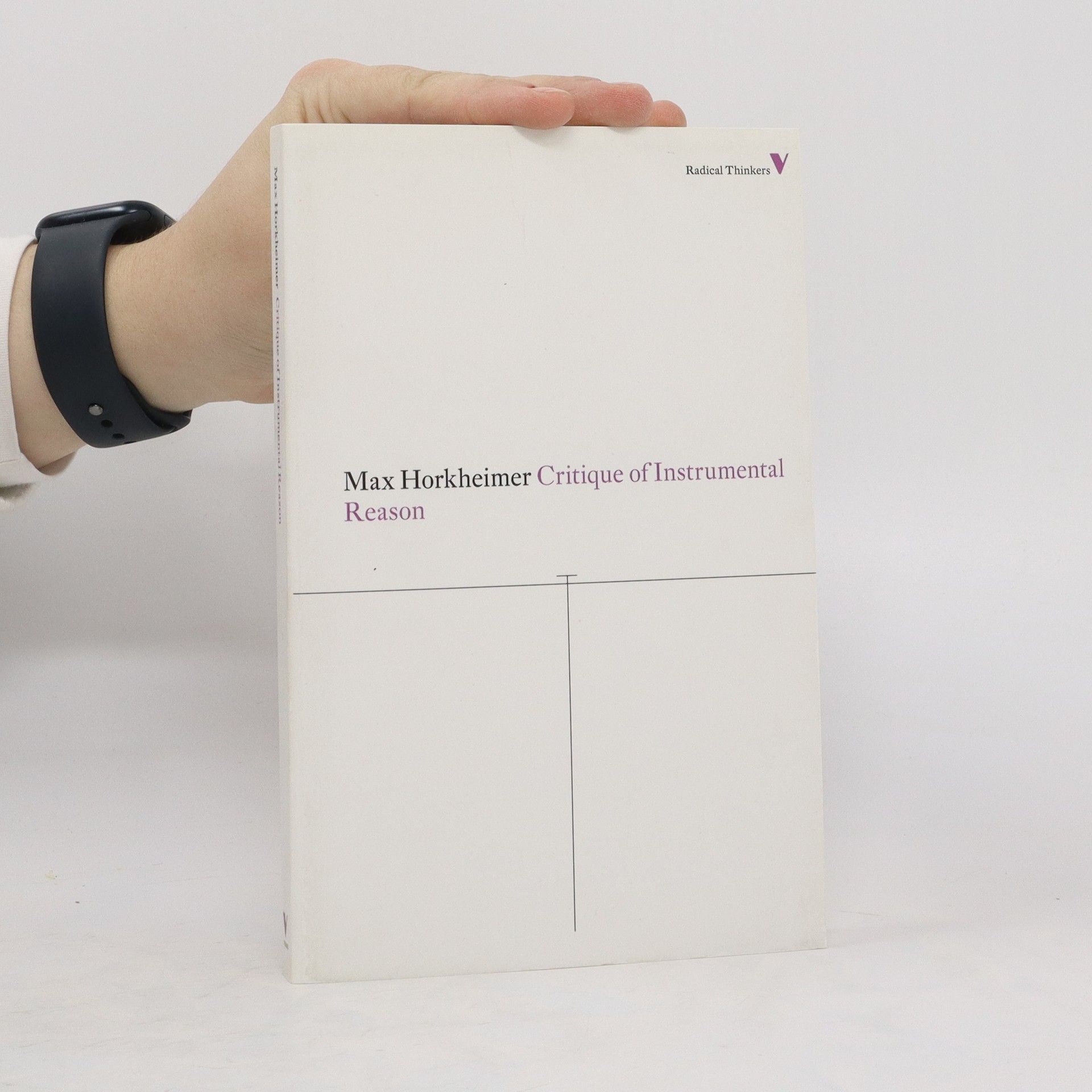
A classic of twentieth-century thought, charting how reason regressed back into myth and superstition
Im Zeitalter der Massenmedien und Konsumorientierung gewinnen philosophische Überlegungen zur Massenkultur neues Gewicht. Theodor W. Adorno und Max Horkheimer sprachen in ihrer »Dialektik der Aufklärung« bereits 1940 von einer ›Kulturindustrie‹. Diese deformiere Kultur zu einer weicheren Form totaler Unterdrückung. Es lohnt sich, »Kulturindustrie. Aufklärung als Massenbetrug«, ein zentrales Kapitel der »Dialektik der Aufklärung«, in diesem Licht neu zu lesen.
Opublikowana po raz pierwszy w 1947 roku a pisana w mrocznym okresie II wojny światowej Dialektyka oświecenia jest być może pierwszą próbą opisu stanu życia publicznego, w którym „myśl staje się nieuchronnie towarem a język jego reklamą”. To z niej czerpała większość postmodernistycznych demaskatorów nowoczesnego rozumu (od Zygmunta Baumana po Michela Foucaulta i Jeana-François Lyotarda). W zamieszczonych tu filozoficznych szkicach i notatkach znajdziemy bezkompromisową analizę niechcianych konsekwencji rozwoju nowoczesności i krytykę powstającego w ten sposób społeczeństwa kultury masowej. Oświecenie – rozumiane najszerzej jako postęp mysli – zawsze dążyło do tego, by uwolnić człowieka od strachu i uczynić go panem. Lecz oto w pełni oświecona ziemia stoi pod znakiem triumfującego nieszczęścia. fragment książki
Between Philosophy and Social Science
- 448 pages
- 16 hours of reading
These essays reveal another side of Horkheimer, focusing on his remarkable contributions to critical theory in the 1930s. Max Horkheimer is well known as the director of the Frankfurt Institute for Social Research and as a sometime collaborator with Theodor Adorno, especially on their classic Dialectic of Enlightenment. These essays reveal another side of Horkheimer, focusing on his remarkable contributions to critical theory in the 1930s. Included are Horkheimer's inaugural address as director of the Institute, in which he outlines the interdisciplinary research program that would dominate the initial phase of the Frankfurt School, his first full monograph, and a number of other pieces published in the 1930s. The essays, most of which have not appeared in English before, are surprisingly relevant to current post-philosophy debates, notably "On the Problem of Truth," with its focus on pragmatism, and "The Rationalism Debate in Current Philosophy," a sustained critique of the post-Cartesian philosophy of consciousness. Horkheimer's 1933 critique of Kantian ethics, "Materialism and Morality," is of particular interest given the current reaction to the neo-Kantian aspect of Habermas's work. There are also essays relevant to the current foundations debate within Continental philosophy, and the rationality/relativism question is sustained throughout the volume.
Die Studien über Autorität und Familie sind neben der Zeitschrift für Sozialforschung das wichtigste kollektive Werk des frühen Frankfurter Instituts für Sozialforschung. Sie wurden zum Grundlagenwerk der Familiensoziologie und begründeten die empirische Sozialforschung im deutschsprachigen Raum. Horkheimers Programm einer Durchdringung von Empirie mit materialistischer Theorie wird in ihnen paradigmatisch an der Familie als zentraler Instanz der Sozialisation durchgeführt. Die Studien umfassen drei Abteilungen. In der ersten Abteilung umreißen Horkheimer, Fromm und Marcuse in großen theoretischen Entwürfen die allgemeine kulturtheoretische, die sozialpsychologische und die ideengeschichtliche Dimension des Verhältnisses von Autorität und Familie. Die zweite Abteilung dokumentiert die empirischen Untersuchungen des Instituts. Dabei werden nicht nur die Ergebnisse der einzelnen Erhebungen etwa bei Arbeitern und Angestellten, bei Jugendlichen oder bei Arbeitslosen dargelegt, sondern immer auch die angewandten Methoden ausgewiesen und die verfolgten Ziele erläutert. Die dritte Abteilung enthält verschiedene Einzelstudien und Literaturberichte. 'Es ist ein Verdienst des zu Klampen Verlages, die 'Studien' nach über 50 Jahren erneut geschlossen (und somit ihren ursprünglichen Zusammenhang wiederherstellend) vorgelegt zu haben.' Deutsche Zeitschrift für Philosophie Das Buch ist 'ebenso solide wie ansprechend gestaltet'. Merkur
Band 1 der ›Gesammelten Schriften‹ enthält früheste Texte – überwiegend Novellen und tagebuchartige Aufzeichnungen – , die Horkheimer während des Ersten Weltkriegs verfaßte. Horkheimer selbst hat noch kurz vor seinem Tode die Wiederveröffentlichung dieser Schriften befürwortet und ihre Anordnung autorisiert. Literarisch sind die Novellen dem Jugendstil und dem Expressionismus verpflichtet, jedoch werden auch schon, trotz Sinnlichkeit und Fabulierlust, die didaktischen Züge des späteren Werks in ihnen kenntlich. Die Texte entstanden zu einer Zeit, da Horkheimer noch nicht an ein Studium geschweige an eine akademische Karriere dachte. Seine philosophische Bildung war höchst fragmentarisch, die Form der wissenschaftlichen Abhandlung stand ihm noch nicht zur Verfügung. Um so erstaunlicher ist, wie ausgeprägt sich bereits hier die für die Kritische Theorie kennzeichnende geistige Spannung zeigt: radikale Kritik an den bestehenden sozialen Verhältnissen, aber Pessimismus und Trauer in bezug auf die Welt als Ganzes. Schon für den jungen Horkheimer löste sich diese Spannung jedoch nicht in einer bequemen, weil folgenlosen Skepsis, sondern in der von Schopenhauer übernommenen Forderung, »wider das unbarmherzige Ewige dem Zeitlichen beizustehen«.

